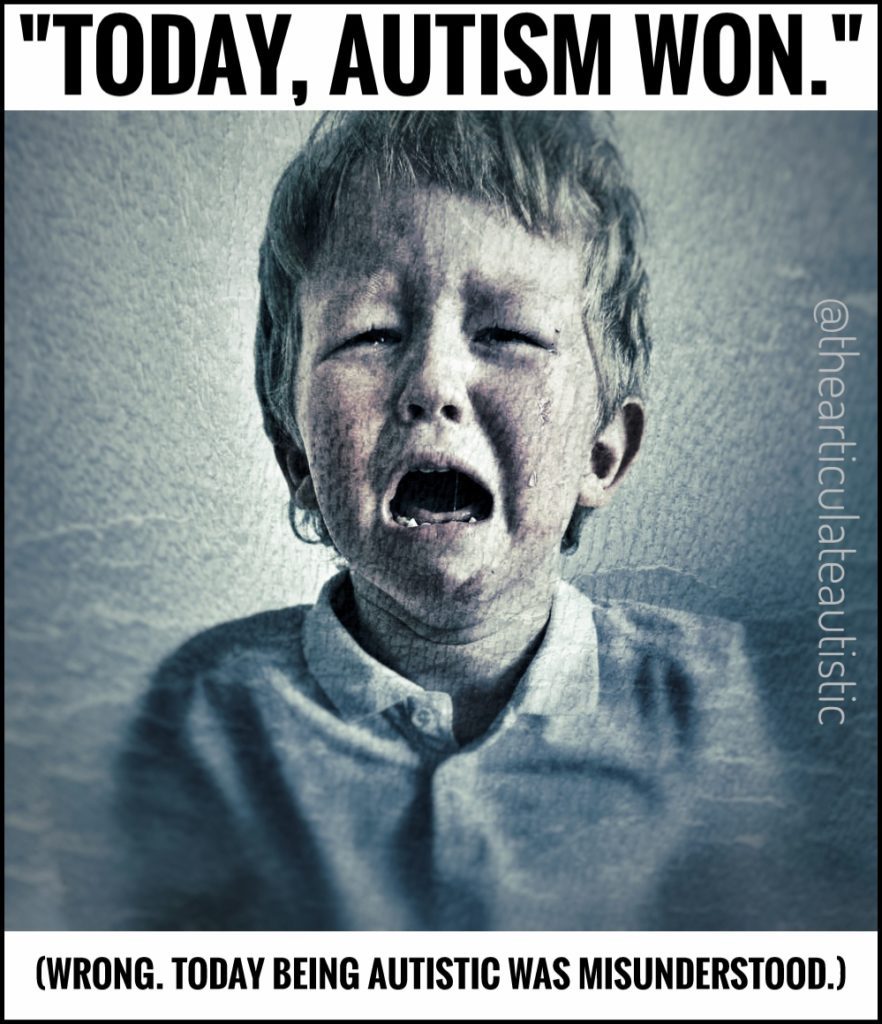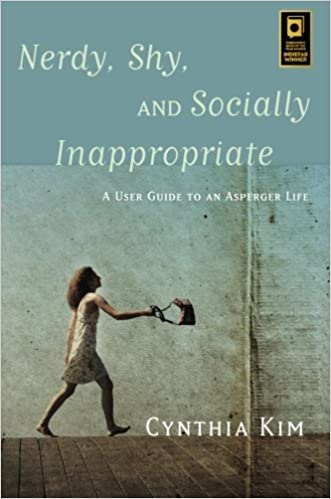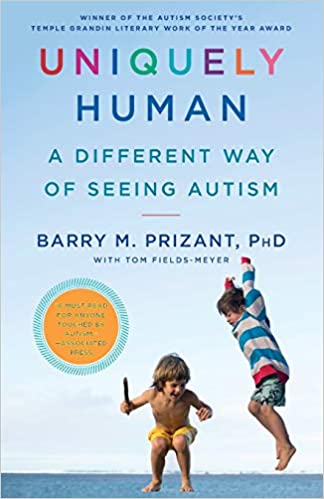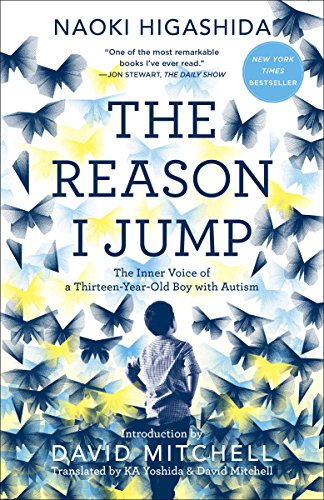“Today, Autism Won” – It’s Not a War, It’s a Language You Can Learn

“Today, autism won.” If you’re a parent with an autistic child, you may have said, thought, or written this before. Let me give you the perspective of an autistic adult about why this is an unnecessarily defeatist way to look at autism.
Hear me out.
When you say “autism won”, I’m thinking you mean that your autistic child screamed and cried, broke something, smacked their sister, kicked you in the shin, or threw dinner clear across the room. Am I about right? Something like that?
OK, autism didn’t “win”.
Autism is not a dark entity that skulks around the corners of your home sneaking up and possessing your child at random intervals. Being autistic is a neurology.
You are not at war with autism, you and your autistic little one speak two different neurological languages, and neither of you is able to communicate effectively with one another, and that is leading to meltdowns and frustration.
One of the best quotes I’ve seen about child-rearing is something along the lines of, “Your child isn’t giving you a hard time, they are having a hard time”. I don’t have children of my own, but it’s something I wish somebody had told my parents when I was younger.
An autistic person, regardless of age, lives constantly in a world that is not designed for our brains. That is traumatic. Read that again. That is traumatic. I’m not saying this for you to feel sorry for us or to increase what may already be burgeoning feelings of hopelessness, I’m saying this so you’ll understand what’s really happening from your child’s perspective.
Think about the last time you were really upset, like, at your wit’s end of frustration. If somebody tried to touch you or talk to you when you were feeling that way, how would you react? Would you snap at them? Recoil from touch? Probably.
Well, this is how your often child feels during general interactions with the neurotypical world. Again, that isn’t to say autistic people can’t live full, rich, and meaningful lives. It just means we have to modify our sensory input and routines in order to do that.

If your child doesn’t yet have any coping mechanisms in place to regulate their emotions and sensory experiences, there will be a lot of what looks like “out of nowhere” screaming, yelling, lashing out, etc.
Your child is not having meltdowns or outbursts “out of nowhere” or “for no good reason”. Something is triggering the behavior, and the behavior is communication. You may not feel, see, smell, taste, etc. whatever it is your child is because your sensory system isn’t dialed up to 10 like ours is. However, that doesn’t mean that what your child is experiencing is any less legitimate. Just because you’re not experiencing anything wrong doesn’t mean your child, even though they are right next to you in the same environment, isn’t genuinely struggling.
I can imagine how hard it is as a neurotypical parent to look at their child playing happily in a corner by themselves and then they suddenly start screaming or throwing things. What happened? Everything was fine!
Guess what? We feel the exact same way. I can’t tell you how many times in my life that I was off in my own little world when somebody would suddenly be screaming in my face, assaulting me with not only their voice but their breath (I hate the smell of breath, even clean breath, but that’s my own particular issue), and, if I tried to turn my head away from the sounds and smells, I would only get in more trouble.
I might have been appearing to “ignore” an adult in the room who had been talking to me, but until they were shrieking at me for being rude, I didn’t even realize they were there!
Oftentimes, your behavior doesn’t make any more sense to us as ours does to you.
We may be living in the same environment, but we are having two totally different experiences. This is why it’s so critical for parents who have autistic children to listen to autistic adults.
Learn about how we think and process the world. Learn about our motivations and intentions, learn how incredibly important and valuable words are and how literally we take them. Learn about sensory processing differences and how even a slight change in something like temperature or routine can cause a misfire in our brains that results in the temporary inability to do anything besides stare into space to self-regulate.
Stop looking at autistic behavior as a personal affront to you, and stop looking at autism as a war you have to fight. It isn’t a war, it’s a language that you can learn. And I and other autistic adults can teach you that language!
Below, I’ve listed some books to get you started on understanding the autistic mind. (Also, spend some time here on the site browsing the articles. You’ll learn a lot!)
Furthermore, whatever your child’s doctor or psychologist told you, don’t let it frighten you into trying to change your child’s fundamental neurology through behavior modification. We don’t actually change at all, we just disassociate and become shells of our former selves who learn to mask for survival. You don’t want that, and us autistic adults don’t want that for your children.
Listen to autistic adults. I cannot stress that enough. It’s not a war, it’s a conversation, and we can have that conversation together.
Resources:
Books
Actually Autistic Advocates
Facebook Groups
Fundamental Articles
Join our private Patreon, members-only Facebook group by clicking here! Only $1 per month.










Dear Jamie
Thank you for this excellent article!
I agree with everything you’ve said in it. In fact, I feel that’s it’s vital that the negative paradigms that currently exist around autism are replaced with positive and accurate ones like neurological difference and language for the sake of autistic health and life.
I would like to use and/or share this article as well as your other ones in relation to the autistic language with fellow autistic people and our allistic allies. How do you feel about that?
Hello, Lewis. Yes, you may share my article as long as you credit back to me and my website. 🙂 Glad it resonated with you!